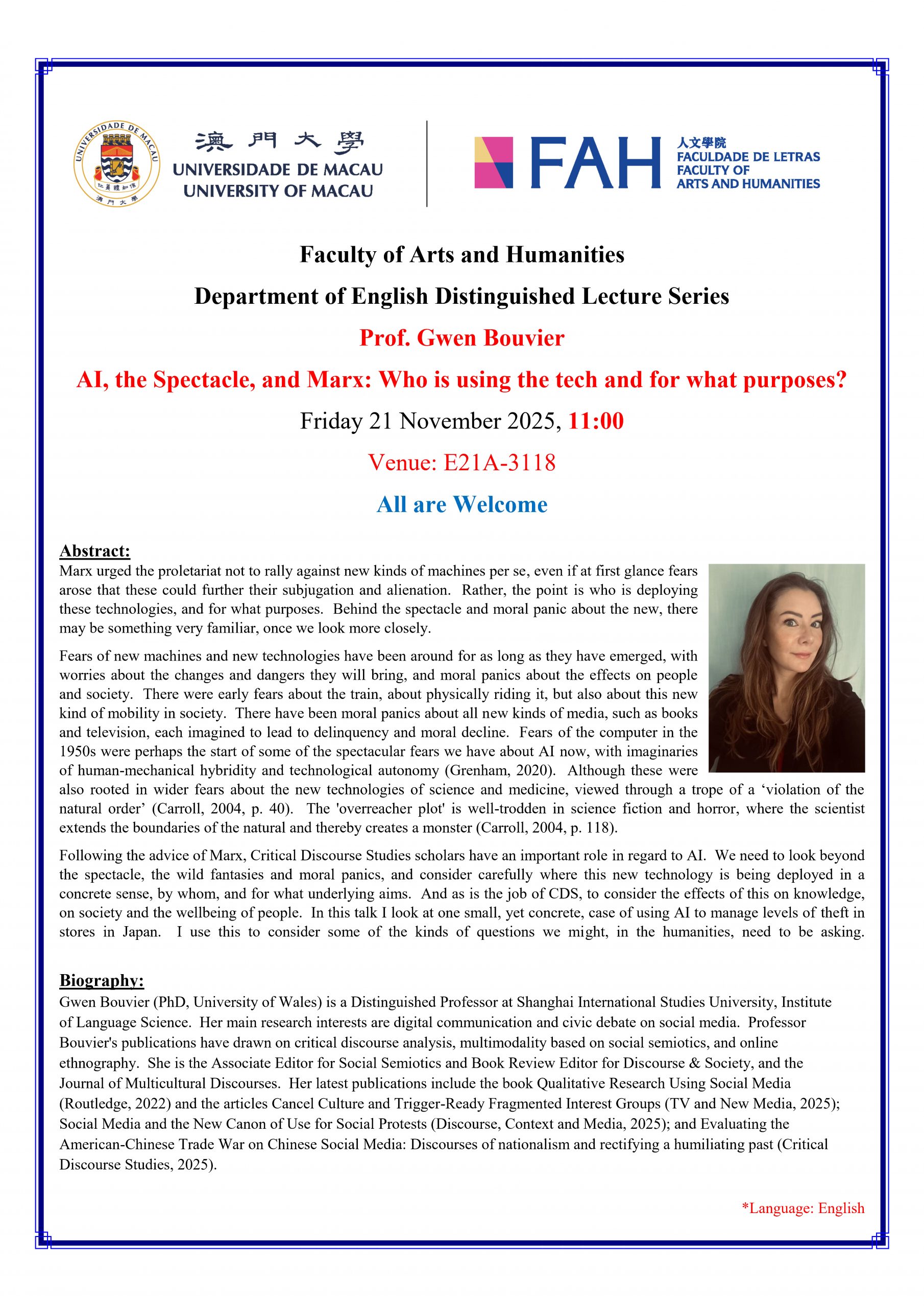

FAH-DENG: “AI, the Spectacle, and Marx: Who is using the tech and for what purposes?”
2025-11-21 @ 11:00 am ~ 12:30 pm
Abstract:
Marx urged the proletariat not to rally against new kinds of machines per se, even if at first glance fears arose that these could further their subjugation and alienation. Rather, the point is who is deploying these technologies, and for what purposes. Behind the spectacle and moral panic about the new, there may be something very familiar, once we look more closely.
Fears of new machines and new technologies have been around for as long as they have emerged, with worries about the changes and dangers they will bring, and moral panics about the effects on people and society. There were early fears about the train, about physically riding it, but also about this new kind of mobility in society. There have been moral panics about all new kinds of media, such as books and television, each imagined to lead to delinquency and moral decline. Fears of the computer in the 1950s were perhaps the start of some of the spectacular fears we have about AI now, with imaginaries of human-mechanical hybridity and technological autonomy (Grenham, 2020). Although these were also rooted in wider fears about the new technologies of science and medicine, viewed through a trope of a ‘violation of the natural order’ (Carroll, 2004, p. 40). The ‘overreacher plot’ is well-trodden in science fiction and horror, where the scientist extends the boundaries of the natural and thereby creates a monster (Carroll, 2004, p. 118).
Following the advice of Marx, Critical Discourse Studies scholars have an important role in regard to AI. We need to look beyond the spectacle, the wild fantasies and moral panics, and consider carefully where this new technology is being deployed in a concrete sense, by whom, and for what underlying aims. And as is the job of CDS, to consider the effects of this on knowledge, on society and the wellbeing of people. In this talk I look at one small, yet concrete, case of using AI to manage levels of theft in stores in Japan. I use this to consider some of the kinds of questions we might, in the humanities, need to be asking.
Biography:
Gwen Bouvier (PhD, University of Wales) is a Distinguished Professor at Shanghai International Studies University, Institute of Language Science. Her main research interests are digital communication and civic debate on social media. Professor Bouvier’s publications have drawn on critical discourse analysis, multimodality based on social semiotics, and online ethnography. She is the Associate Editor for Social Semiotics and Book Review Editor for Discourse & Society, and the Journal of Multicultural Discourses. Her latest publications include the book Qualitative Research Using Social Media (Routledge, 2022) and the articles Cancel Culture and Trigger-Ready Fragmented Interest Groups (TV and New Media, 2025); Social Media and the New Canon of Use for Social Protests (Discourse, Context and Media, 2025); and Evaluating the American-Chinese Trade War on Chinese Social Media: Discourses of nationalism and rectifying a humiliating past (Critical Discourse Studies, 2025).

